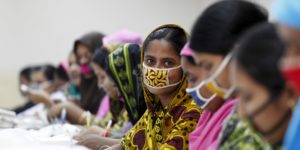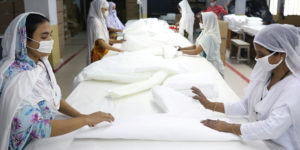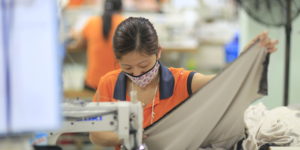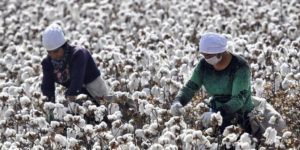Commentary Archive
Following the closure and illegal nonpayment of severance at CSA Guatemala, the factory’s primary buyers—Gap, Hanesbrands, and American Eagle Outfitters—agreed to make contributions totaling a little more than $1.3 million to the factory’s approximately 650 former employees. CSA Guatemala, located in Guatemala City, fully closed operations on January 19, 2019. At the time of the…
Read MoreThe WRC has been working for the last two months to address the most urgent challenge facing garment workers: the decision of many leading apparel brands and retailers, at the outset of the Covid-19 crisis, to retroactively cancel apparel orders that suppliers and workers had already produced. This sudden withdrawal of billions of dollars in contractually…
Read MoreThe WRC is tracking which brands and retailers are paying for goods that are finished or in-production and which are breaking their commitments, with devastating consequences for workers in their supply chains. Our tracker now also features a section for Updates and Analysis. Photo credit: REUTERS/Mohammad Ponir Hossain
Read MoreOn April 24, 2013, the Rana Plaza factory collapse claimed the lives of 1,137 garment workers in Bangladesh and injured thousands more. The tragedy, which was the deadliest disaster in a manufacturing facility in human history, put a spotlight on the grossly unsafe labor conditions plaguing Bangladesh’s garment sector and catalyzed fundamental reform. The international…
Read MoreThis live-blog by the Clean Clothes Campaign aims to collect daily information about how the new Coronavirus COVID-19 is affecting garment workers’ rights in supply chains around the world. It will be updated as new information comes in from media and the Clean Clothes Campaign global network. Information is posted as it comes in from…
Read MoreBy Sharan Burrow, General Secretary of the ITUC & Phil Bloomer, Executive Director of Business & Human Rights Resource Centre – Steps should be taken to protect workers and business, write Sharan Burrow and Phil Bloomer. As the economic and human rights impacts of the COVID-19 outbreak come into view, we are again seeing supply…
Read MoreBy the International Labor Rights Forum – The U.S. has one of the most powerful tools for preventing the import of goods made by forced labor: the Tariff Act. Yet, Section 307 of the Tariff Act is rarely enforced. In its new report released today – “Combatting Forced Labor and Enforcing Workers’ Rights Using the…
Read MoreFreedom of association is a fundamental and critical right allowing workers to collectively demand better working conditions. Yet factory management around the world often deny workers this right, illegally terminating union leaders, and sometimes employing violence to quell union organizing. Buyers at the top of the supply chain generally fail to detect such violations or…
Read MoreBy Rola Abimourched – Today marks the end of this year’s “16 Days of Activism against Gender-based Violence” campaign. Since its inception in the 1990s, feminist organisations, activists, and courageous individuals have tirelessly foregrounded women’s experiences of violence in their homes, communities, and workplaces. Beyond raising awareness, organisations and individuals have used these sixteen days…
Read More









Coalition to End Uyghur Forced Labour Testifies before Congress
Representatives from the Coalition to End Uyghur Forced Labour testified before the House Ways & Means Committee on Thursday, September 17, 2020. The Campaign for Uyghurs, the Worker Rights Consortium, and the AFL-CIO provided testimony to members of Congress on why apparel brands must divest from the Xinjiang Region of China. Supply chains of most…
Read More